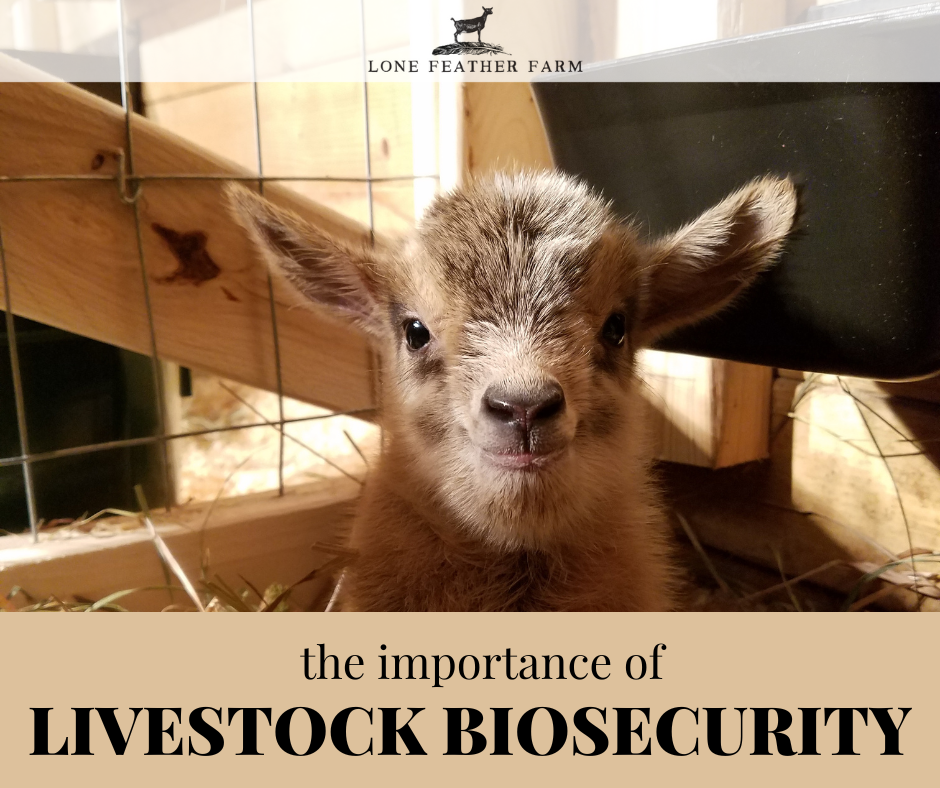Buying Goats | What to Know
When you first consider buying goats, it's hard to know what to look for. When I bought my first goats, I didn't know what to look for or what questions to ask, and as a result, ended up with a chronically ill goat. An unscrupulous breeder saw this newbie coming a mile away and decided to unload a "problem goat" on someone who didn't know any better. When I discovered the health issue, the breeder brushed me off and offered no support. It was very frustrating and disappointing to say the least.
I was lucky enough to discover another breeder after that who was happy to spend two hours on the phone with me, answering my questions, telling me what I needed to know. I bought two goats from them, and they have been our mentors and friends ever since.
Unfortunately, this isn't an uncommon occurrence. There are breeders out there who aren't afraid to move their less desirable goats onto people that don't know any better - and sometimes charge a pretty penny for them. When you're looking to bring new goats home, knowledge is power. Knowing the right questions to ask and what to look for will help ensure you get the best goat possible.
Prep Work
Before you go goat shopping, make sure you know what you're looking for. Deciding on the breed of goat you want is important. Standard sized breeds and miniature breeds have very different needs. Some breeds are better than others for milking and cheese making as opposed to pets.
Once you've decided on a breed, you should figure out if you wants to start with mature animals or kids. Mature goats can give you a good head start on a productive herd. Kids are easy to bond with and give you the advantage of growing with them in your management. Mature animals are typically more expensive, especially does in milk. Don't bring home a doe in milk unless you've had some practice milking, or it will be a very frustrating experience for everyone involved
Before buying a goat, you will also want to be sure you're fully prepared to bring them home. Make sure you have a full list of supplies and that your fencing and housing are adequate.
A healthy herd is a happy herd
Herd Health
A healthy goat is a happy goat. Being able to see the herd your new goats may be coming from in person is very helpful in assessing the overall health of the herd. If you have the ability to do a farm visit, this is your best chance to look at hair coats, weight, clear eyes and general maintenance.
Talk to the breeder about their management. Do they have biosecurity measures they use? Do they do regular fecal testing? Do they use a holistic approach to treatment? Do they have a regular vet they see when needed who can be a reference?
Most reputable herds will also be able to show records of yearly testing for CAE, CL and Johnes disease - deadly diseases you don't want to bring home with you. If a breeder claims to have a "clean, tested herd" ask them what that means - a lot of those folks only test for CAE. Be sure to ask for paperwork reporting their testing results if they claim to test. Most breeders are more than happy to share that information with you since they invest good money in ensuring their herd is tested.
Why This Goat?
Ask the breeder why they are choosing to sell this goat. Do they just need to downsize? Is there a reason this goat isn't working with their breeding program? Do they have a flaw that the breeder is trying to eliminate from their herd? Do they have trouble conceiving? Kidding? Do they have personality issues? There are a million reasons someone may decide to sell a particular goat - the reason may tell you if the goat will be a good fit for your breeding program.
Hands On
The best way to know if you want to buy a goat is to see it in person. A nice picture and a good description can only tell you so much about a goat - seeing it in person will be able to tell you everything you need to know. You can get a good sense of their personality, see if they're easy to handle, and view the physical condition of the goat. If allowed, try to take a close look for any sign of abscesses or injuries. Feel the coat. See if the eyes are clear and bright. Even someone new to goats can spot potential problems when they see a goat up close and personal.
After Buying Goats - Breeder Support
Having a good working relationship with the breeder you buy your goats from is very important. Knowing you can go back with questions after buying your goats is priceless. Spend time talking to the people you'll be buying your goats from and make sure you feel comfortable with the knowledge and experience they have to share with you when needed.
To get you started, I’ve included a handy list of questions you can print off to remind you of important things you should be asking about any potential new goats.







